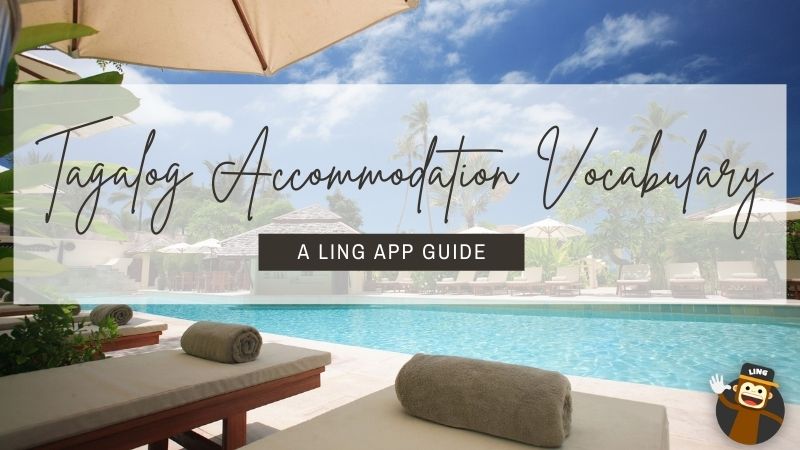Are you ready for your backpacking trip to the Philippines? Then this blog post is perfect for you since we will discuss Tagalog accommodation vocabulary that you can use today. You’ll need these basic Tagalog words and phrases to communicate with the locals and avoid misinterpretations. Read the complete guide and have fun learning!
Accommodation In The Philippines: A Quick Look
The Philippines is one of Asia’s most exciting and practical travel destinations. It offers great natural views, but it also is the home to some of the mouthwatering dishes in the world! For this reason, we understand why you are probably interested in visiting this country.
Before you book your ticket and look for travel hacks, you must also prepare yourself in terms of the available accommodations in the country. The following are some of the different types of accommodations available in the Philippines. All of these types have the same Tagalog translation.
Hostels
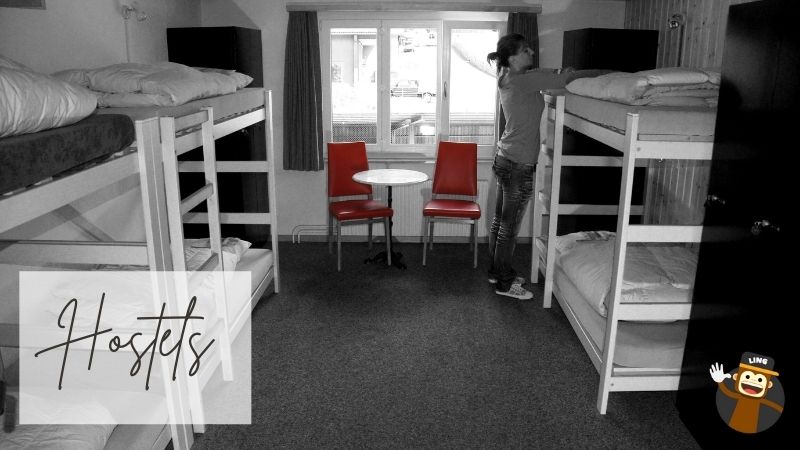
Hostel dormitories or “dormitoryo” are the backpackers’ favorite. These economical and reasonable accommodations are perfect for short-term stays. The Cost varies between $5 to $30 per night, depending on the scope of your bedroom, proximity, and general quality. Hostels are excellent for outdoorsy and sociable travelers on a budget since they provide common space for people to mingle, often near pristine beaches and landmarks. They can be rented on a day-by-day arrangement, permitting serendipity.
Do note that the quality of hostels varies, yet trendy hostels typically include wifi, laundry services, lifestyle, and a café or bars.
Hotels And Resorts
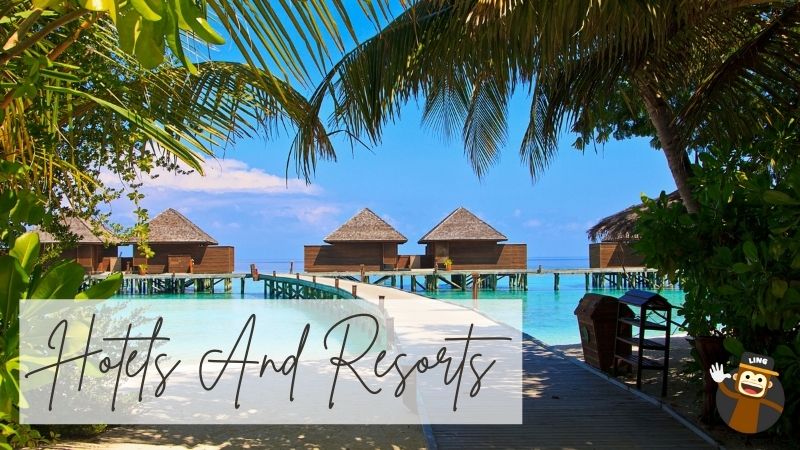
In the Philippines, a hotel or “bahay-tuluyan” could vary from a lavish beachfront five-star hotel or resort with personal assistants and health clubs such as spas and saunas to an ambiguous motel with glass windows, so doing some research is essential. Budget hotels have a fan or a small air conditioner. In contrast, mid-range hotels in towns and cities will almost always have heated water, comfortable beds, and a tiny restaurant directly attached. In contrast, leading hotels run by international hotel chains will always have glamorous rooms, buffets, and plenty of bougie amenities.
Securing hotels in advance is not necessary unless you are traveling during peak season or to major local festivals, but booking your accommodation is part of the planning process.
Beach Huts

Why not stay in a typical Filipino beach hut or “kubo” if you want to go island hopping and truly get away from everything? These are situated on secluded islands in Palawan, particularly surrounding El Nido and Coron, and offer a real and unique experience. There will be no internet or wifi, simply mosquito nets, public restrooms, and the beauty of nature.
Guesthouses
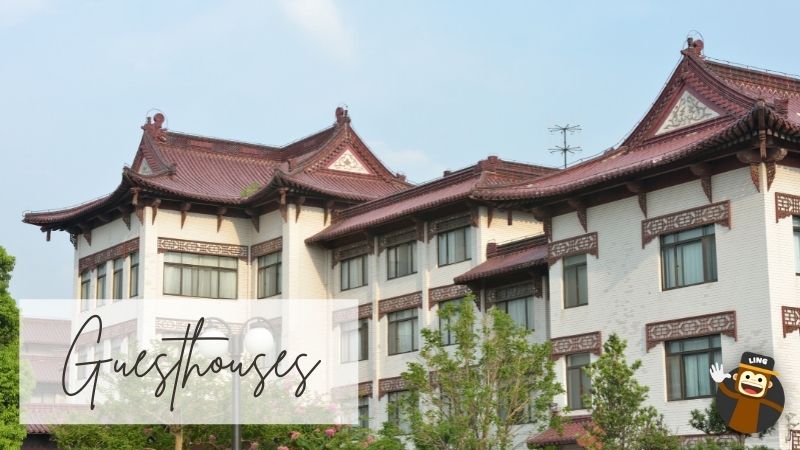
Countless private family mansions in the Philippines offer low-cost accommodation for vacationers. You will be given a private room with a bathroom and a delicious complimentary breakfast. It’s also a fantastic opportunity to learn about Filipino culture, meet Filipinos, and interact in ways you wouldn’t be able to do otherwise. Being given home-cooked Filipino cuisine is likely to be one of the most authentic experiences at a Filipino guesthouse.
Apartments And Condominiums
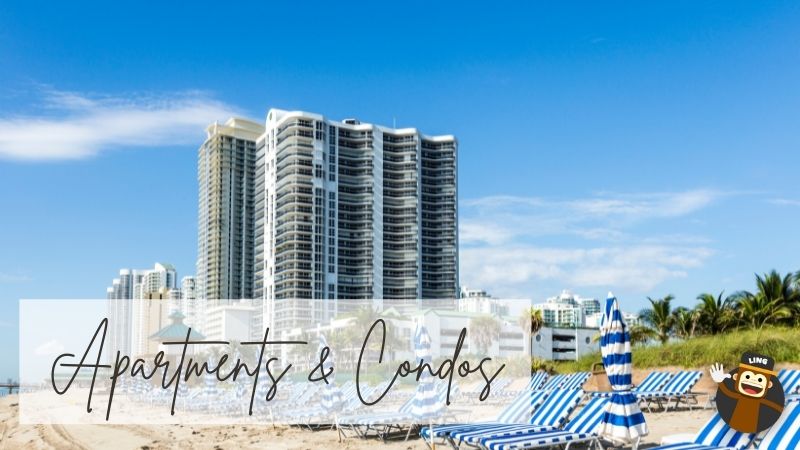
Privately owned apartments in major cities and rural areas can be rented for lengthier, more expensive vacations in the Philippines. Condominiums, commonly called ‘condos,’ are units located on the top floors of buildings typically owned by a real estate investor. Condominiums are often ready to use and situated in commercial areas.
Tagalog Accommodation Vocabulary
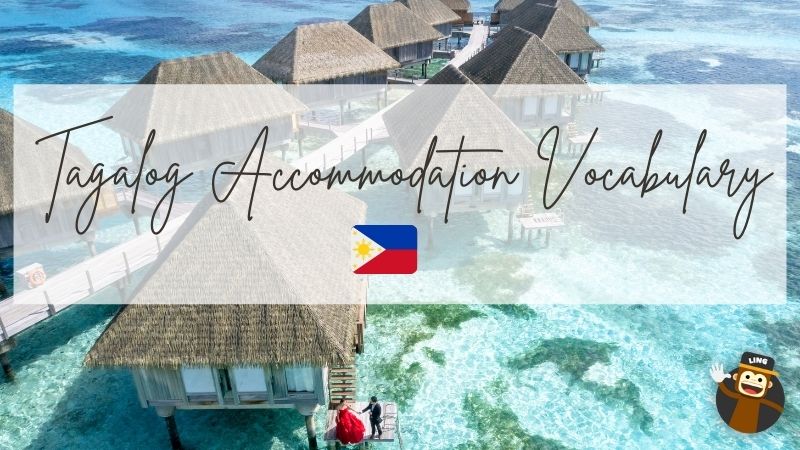
The following are some hotel vocabulary and other related Tagalog accommodation vocabulary words that you may use anytime you ought to visit the Philippines:
Other Related Phrases

Learn Tagalog Vocabulary With Ling App
Are you searching the website for the perfect language learning app to help you learn the most frequently used Tagalog terms? The Ling App is designed to help you comprehend and memorize unfamiliar words. To learn more about the Tagalog language, use the Ling App to study and learn other Tagalog vocabularies, such as Tagalog business vocabulary, health vocabulary in Tagalog, addresses in Tagalog, and Tagalog disasters.
The Ling App by Simya Solutions is a language learning app for anyone who wants to sound like a native speaker. Users may choose from various languages to learn because the Ling App supports over 60 languages.
Furthermore, the app’s stimulating linguistic activities, such as interactive quizzes and captivating flashcards, contribute to target language learning. Users can use the Ling app’s A.I. chatbot to consult and ask questions about the content, grammar, pronunciations, and other elements of their target language.
Ling App also offers language reviews and comments developed by language specialists and native speakers and a range of informative blog posts concerning specific language courses and other language apps.
If you’re eager to learn languages, get the Ling App and start learning in some classroom yet cool setting!
